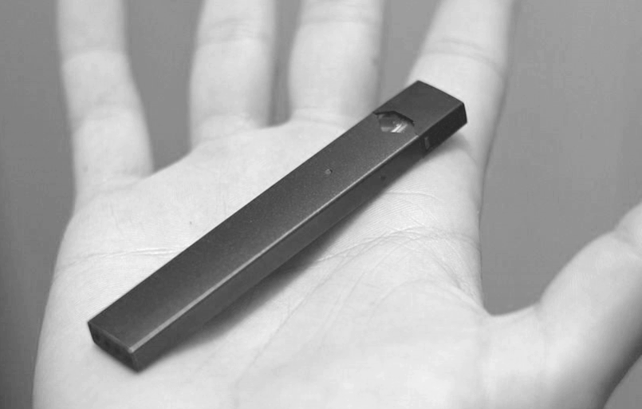In my blog post A Parent’s Suggestions for Improving the Division of Youth Services, I outlined several areas DYS needs to improve upon. The third area is security, which I believe is severely lacking. DYS can improve security in its facilities by doing the following:
- End contracts with private companies for greater control over and consistency among facilities
- Implement the same rules and procedures for every secure facility, the same rules and procedures for every staff secure facility, and the same rules and procedures for every community facility
- Have a designated security guard at control to wand/pat down visitors who set off metal detectors
- Conduct better searches of youth after visits and when returning from passes
- Conduct better searches of youth rooms
- Bring in K-9s to locate drugs in the facilities
- Use urine analysis kits instead of saliva kits for drug testing
- Require staff to wear body cameras for transparency inside youth rooms or other areas without video surveillance
- Take physical and sexual abuse claims more seriously, and report them to law enforcement in addition to the Child Abuse Hotline
- Remove for-profit GTL AdvancePay “blue phones” that allow youth to call anyone, including those who have protection orders against them
While in the custody of DHS and DYS, Mallory has spent time in a total of eight different facilities, some of them secure, some of them staff secure, and some of them not secure at all. Every one of these facilities has security issues and is rampant with drugs.
I was once told by our DYS regional director of client management that DYS has very little control over its facilities that are run by private companies, so my first suggestion would be to eliminate contracts with private companies altogether. DYS should run its own facilities to ensure that every facility is in compliance with DYS policies. This would also help establish consistency among facilities of each security level. Currently, the rules and procedures for each facility of the same security level are vastly different, which can be frustrating for youth (and their families) when they are moved from one facility to another.
Security at the entrance to these facilities is noticeably lacking. There are metal detectors in secure facilities like the Marvin W. Foote, Mount View, and Platte Valley Youth Services Centers, but they are frequently set off, and the person in the control booth is usually alone and so busy that this often goes unnoticed or ignored. There needs to be a designated security guard at the control booth in secure facilities who can wand and pat down visitors who set off the metal detector. Less secure facilities also need designated security guards to prevent youth from running away and putting themselves at risk of sex trafficking. At The Sanctuary at Shiloh House, for example, staff watched my daughter and another girl walk right out the front door, and they didn’t follow them, due to lack of staffing. Two weeks later, the girls were found in another state with two adult males.
To try to eliminate drugs in the facilities, better searches need to be conducted of youth following visits and when returning from passes. Instead of using saliva kits which aren’t effective, youth returning from passes should be given urine analysis kits to test for drug use. More thorough searches of youth rooms also need to be conducted, and the use of K-9s would help with this substantially. At the Betty K. Marler Youth Services Center, girls were injecting crystal meth with a shared needle in the middle of a typing class at one point. Staff were unable to locate the needle when its existence was brought to their attention. One of the girls fortunately came forward with it after staff searches turned up empty. At Platte Valley, some of the boys were caught smoking marijuana in a bathroom near the kitchen, and the girls frequently got away with smoking it in the showers.
For greater transparency inside facilities, especially when staff enter youth rooms and other areas where there is no video surveillance, I would suggest that staff be required to wear body cameras. A recent excessive use of force investigation involving Mallory at Platte Valley was complicated by the fact there was no video footage of the eighteen-minute incident because it occurred inside her room where there were no cameras. There has to be a way to monitor staff interactions with youth while inside their rooms.
Sadly, staff members sometimes do physically and sexually abuse youth in DYS custody. These kids’ claims need to be taken seriously. They are often not believed, their claims are not reported, or they are reported to the Child Abuse Hotline which sometimes declines to investigate, or the incident is only investigated by that county’s Department of Human Services (DHS). If there is no video footage to support the claims, the facility will do little more than move the accused staff member to another unit, potentially allowing that person to abuse another youth. Claims of physical and sexual abuse need to be reported to law enforcement, and a real investigation needs to be conducted.
Finally, the for-profit GTL AdvancePay “blue phones” need to be removed from youth facilities. These phones on the units allow youth to call anyone on the outside who allocates money to their phone number, including those who have protection orders filed against them for physically or sexually abusing or even trafficking these kids. DYS needs to value our children more than the profit they are making from the blue phones.
The safety of youth in DYS custody is not something that should be taken lightly. This is an area that needs significant and immediate improvement.
Up Next: Improving DYS: Mental Health and Substance Abuse Services





